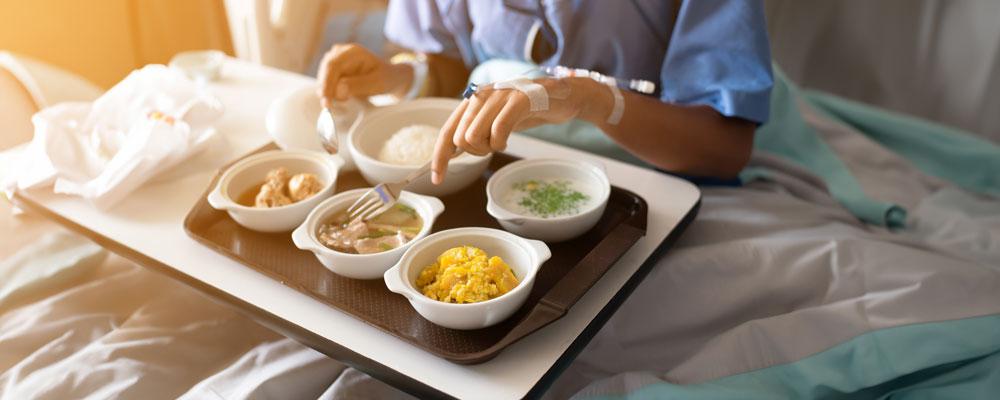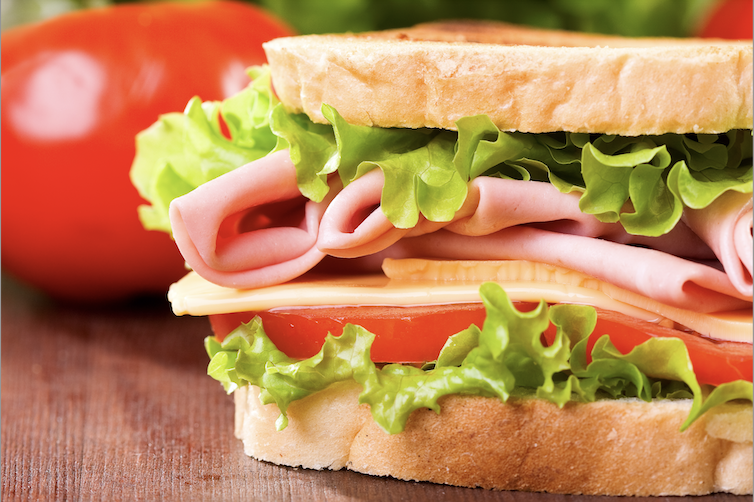Craig Smith, chairman of the Hospital Caterers Association (HCA), explains why investing in high standards of catering is so important
With more than 300 million meals served every year and approximately £500 million spent on food annually by around 300 NHS trusts across approximately 1,200 hospitals, the NHS is the UK catering industry’s largest provider of meals.
Established in 1948, the Hospital Caterers Association (HCA) is the professional body representing almost 400 senior healthcare managers who provide a wide range of food services for patients, staff and visitors in NHS hospitals and healthcare facilities nationwide. Our network of members is responsible for the jobs of 35,000 people, 55 per cent of which are hospital chefs and kitchen-based catering staff. Amongst our associate membership is more than 100 suppliers who are responsible for supplying millions of pounds worth of food, services and equipment to the hospital catering sector.
Although the provision of meals for patients is our principal function, our members are also responsible for providing meals for doctors, nurses and ancillary hospital staff. Every day they also cater to visitors who dine in the hospital restaurants, dining rooms or cafe facilities. Through these additional services, hospital caterers help to generate more than £150 million worth of income for the NHS.
The HCA was one of the first professional associations to be formed within the NHS and was founded by 25 London hospital catering officers. Whilst our first branches were established in the North and Scotland in the 1950s, we have now grown to 15 branches throughout the UK. Our members represent more than 250 NHS trusts. And our network is the single largest group of healthcare catering/facilities providers within the NHS.
As a national organisation, we aim to promote, develop and improve the standards of catering in hospitals and healthcare establishments. To achieve this, we support, educate and train people working in healthcare catering services. Ultimately, improving the professional interests and status of healthcare catering practitioners.
Our mission is to set a clear path to keep the HCA at the forefront of patient care, whilst addressing the needs of our other customers including staff and visitors. We recognise that we cannot do this in isolation, therefore are committed to working with the Royal College of Nursing (RCN), and allied professional organisations such as the British Dietetic Association (BDA) and the Royal College of Speech and Language Therapists.
Power of 3
In order to provide our members with the appropriate knowledge, support and assistance in achieving and maintaining the highest standards of catering service, we have implemented a range of specialist services and high-profile initiatives.
The primary campaigns we exercise are ‘Power of 3’, ‘Nutrition and Hydration 24/7 365’ and the ‘Last 9 Yards’. These hugely successful initiatives have helped to shape the provision of good nutrition and hydration within healthcare establishments across all four nations.
The ‘Power of 3’ initiative seeks to bring together three complementary disciplines; catering, dietetics and nursing. The collaboration of the three professionals can help to improve the patient experience and increase nutritional outcomes.
The Nutrition and Hydration 24/7 365 campaign focuses on the importance of nutritious food and beverages, the risks of malnutrition and what can be done to prevent malnutrition in health and social care environments 24 hours a day, 365 days a year. The initiative builds on our campaign to improve patient screening during hospital admission and identify those most at risk of malnutrition.
We firmly believe that by actively promoting the preventative role caterers can play, this can help reduce malnutrition-related illnesses, and caterers can endorse good nutritional practice as a key part of quality care for patients. Our focus is to ensure patients are best supported in their recovery with balanced meals suitable for their needs. By undertaking this role, caterers can prevent malnutrition and the requirement for complex treatment and prolonged recovery periods.
Lastly, the ‘Last 9 Yards’ campaign presents the case for food quality and enjoyment at the ward level. Arguing that food must form part of the patient’s recovery plan. We advise that a team approach is critical. We urge caterers to work together with the fellow healthcare professional on the wards to offer an enhanced mealtime experience. ‘Last 9 Yards’ also highlights that if food is not eaten it can do no nutritional good. This resulting in food waste, which means money is wasted.
Managing waste
Our members produce millions of meals each week. With this comes a huge challenge of managing waste. Untouched food that has been delivered to a Ward simply cannot be used elsewhere, and it cannot be sent to animal feed either. Simply because there is a risk of cross-contamination.
Natural waste such as vegetable trimmings could be sent for composting but the logistics of this present economic pressures for caterers. We are actively working with other interested groups such as local authorities, equipment suppliers and waste management specialists to look at any opportunity that will help healthcare establishments play their part in reducing unnecessary refuse being sent to landfill.
Along with other influential organisations such as The University Caterers Organisation (TUCO) and the National Association for Care Catering (NACC), we are signatories to the Courtauld Commitment 2025. Spearheaded by WRAP (Waste and Resources Action Programme), we are committed to working toward a collective goal to cut the amount of resource needed to provide food and drink by one-fifth in 10 years.
The targeted overall outcomes from 2015 to 2025 calculated as a relative reduction per head of population, are a 20 per cent reduction in food and drink waste arisings in the UK, 20 per cent reduction in the GHG (greenhouse gas) intensity of food and drink consumed in the UK and a reduction in impact associated with water use in the supply chain.
Healthy eating trends continue to evolve. Our focus is to provide a truly patient-centred service, meeting the needs of every individual patient in our care. In 2018, we supported The Vegan Society in their campaign for nutritious vegan meals on public sector catering menus. We recognise that patient dietary requirement are important, and therefore we will always cater for all patients’ individual needs.
We acknowledge that healthcare establishments are now expected to offer ‘high street’ standard retail for staff and visitors. Many NHS trusts and health boards seek to divorce the patient catering from the retail and have been inviting high street brands to fill the space, believing that this will maximise the financial returns. We believe this does not always reflect the real needs of the staff, who keep the hospital running 24 hours a day, seven days a week.
Whilst there currently is a lot of amazing work in our hospitals, we are always looking for ways to develop and improve our existing practices. As an organisation which prides itself on learning and development, we will continue to work with all four NHS nations. Expanding our ability to deliver networking opportunities such as our regional meetings, study days, regional conferences, educational visits and our annual Leadership and Development Forum.
We encourage caterers to sign up to apprenticeships in the workplace and advocate the professional catering qualification for health and social care catering – Level 2 Award in Professional Cookery in Health and Social Care. This was developed by the HCA, National Association of Care Catering (NACC), and the awarding body of the Institute of Hospitality (IOH). The qualification is designed to complement existing NVQ qualifications in professional cookery and tackles the important subjects of nutrition and hydration, and food modification in healthcare settings.
Stewart McKenzie, HCA immediate past national chairman, said: “We continue to raise the profile and professionalism of our members to drive and improve the quality of hospital catering. From caterers’ menus and ingredients, to dietitians, safeguarding nutritional content, and the final ward-end delivery supported by clinical teams. By working together, we can deliver excellence to each and every patient in our care.”





